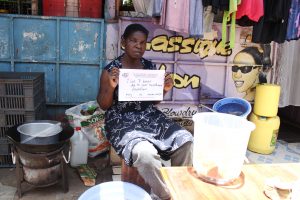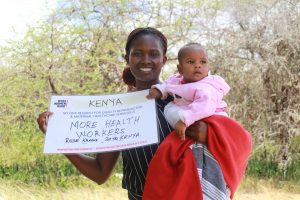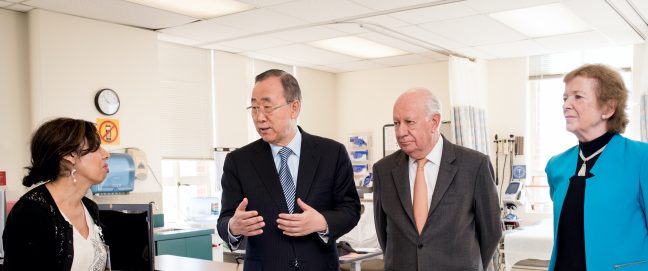Philanthropy can greatly help the implementation of Universal Health Coverage, but it needs to pay attention to some key issues

What Women Want campaign in Kenya. Credit: WRA Kenya
With 400 million people the world over lacking essential health services and many others in low- and middle-income countries pushed to extreme poverty by the high cost of healthcare, Universal Health Coverage (UHC) is seen as the way to access health services for all, while ensuring that high standards of service delivery are upheld. Moreover, the UN’s UHC Political Declaration recognises UHC as fundamental to achieving the 2030 SDG Agenda. Governments are therefore called upon to significantly increase their health investments to deliver it.
These responses show people’s desire to reclaim power from those who make decisions on their behalf and from those who design and implement health policies and programmes without consulting them.
Philanthropy can potentially play a key role here, but to do so effectively it should embody the key principles of the UHC promise – quality, equity and accountability.
The UHC agenda is centered on varied approaches including integration, coordination, efficiency and collaboration. Philanthropic funding approaches can be remodelled to ensure alignment with these approaches and to propagate publicly funded UHC reforms. Effective philanthropy must be community-driven so that it addresses the most important UHC challenges, with priority setting done by the people who will benefit from the services. The White Ribbon Alliance-led What Women Want (WWW) campaign revealed the importance of this. Reaching close to 1.2 million women and girls across 114 countries, the WWW campaign sought to understand what quality, a key principle of UHC, means for them. Respect and dignity were the first priority – being called by name, absence of discrimination and judgment when seeking care. Water and sanitation, especially clean toilets, clean linen, etc, were also ranked high. These responses show people’s desire to reclaim power from those who make decisions on their behalf and from those who design and implement health policies and programmes without consulting them.
Multi-stakeholder and cross-sectoral partnerships should never leave out local advocacy efforts and people’s voices if sustainable impact is desired.
Advocacy by civil society has been an essential component of the progress in global health over the past 20 years. By championing the informed, independent voices of people who are most affected by weak healthcare systems, grassroots CSOs are essential amplifiers in UHC implementation. They raise awareness about gaps and inequities, propose solutions to address them and lead accountability mechanisms for UHC tracking and delivery. However, in the ongoing UHC reforms, they are often left out. Data to support implementation in countries, such as the Kenya UHC pilot, is based on research generated by UHC experts and not on the views of CSOs or community groups. Philanthropy must provide support for their endeavours. This means prioritising funding for national- and grassroots-level advocacy for accountability, something which is overlooked by both governments and funders, but which can improve use of UHC resources and sustainability. Furthermore, multi-stakeholder and cross-sectoral partnerships should never leave out local advocacy efforts and people’s voices if sustainable impact is desired.

What Women Want campaign in Kenya. Credit: WRA Kenya
Philanthropy should help nations in planning and implementing strategic health financing models that can better support UHC delivery from primary healthcare to more complex curative, palliative and rehabilitative care. This will ensure that reforming national UHC architecture addresses the current widespread inequities. Philanthropies should prioritise the impact of their work on the most marginalised populations.
Another critical element they need to confront is the gaping governance and leadership deficits in UHC delivery, addressing in particular corruption in the health sector. It’s no use continuing to fill a leaking bucket. Well-funded evidence generation and analysis is required to inform better interventions and responsive funding policies. Factors which produce corruption are varied in different healthcare settings and country contexts, hence the need for more deliberate funding for social accountability. At the end of the day, investing in the voice and agency of citizens will directly guarantee desired social impact and will build a strong accountability mechanism to ensure UHC is delivered as promised.
Angela Nguku is executive director of White Ribbon Alliance, Kenya.
Email: anguku@whiteribbonalliance.org
Twitter: @angienguku




Comments (1)
Wow, This is incisive and well articulated